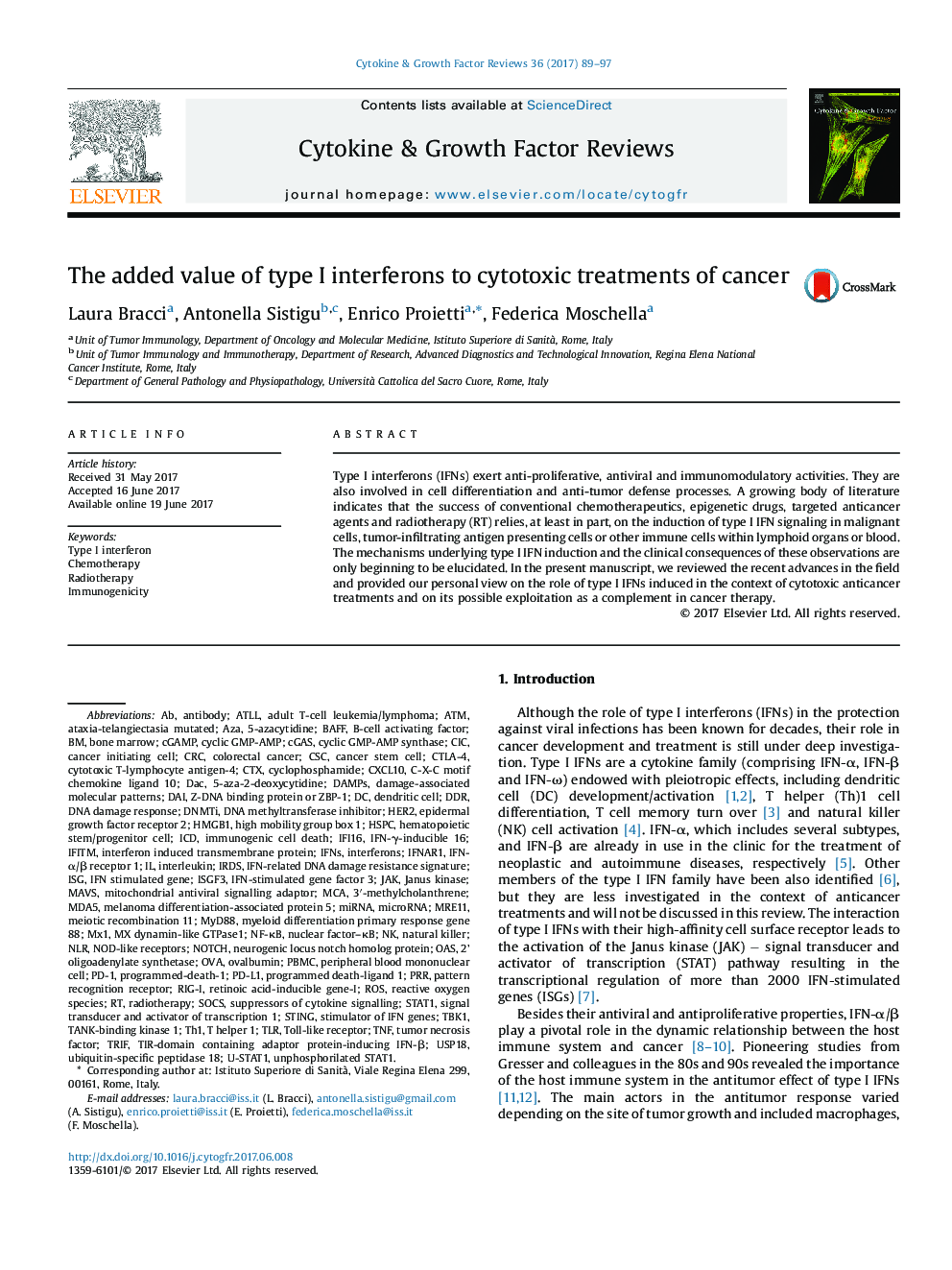| Article ID | Journal | Published Year | Pages | File Type |
|---|---|---|---|---|
| 5531194 | Cytokine & Growth Factor Reviews | 2017 | 9 Pages |
â¢The therapeutic efficacy of some cytotoxic anticancer therapies relies on the induction of type I interferons in malignant or immune cells.â¢Type I interferons released by dying tumor and/or tumor infiltrating immune cells enhances the immunogenicity of tumor associated antigens.â¢Exogenous type I IFN administration can restore the immunogenicity of cell death following non-immunogenic treatments.â¢Dying tumor cells along with type I interferons mimic an endogenous anti-tumor vaccination.
Type I interferons (IFNs) exert anti-proliferative, antiviral and immunomodulatory activities. They are also involved in cell differentiation and anti-tumor defense processes. A growing body of literature indicates that the success of conventional chemotherapeutics, epigenetic drugs, targeted anticancer agents and radiotherapy (RT) relies, at least in part, on the induction of type I IFN signaling in malignant cells, tumor-infiltrating antigen presenting cells or other immune cells within lymphoid organs or blood. The mechanisms underlying type I IFN induction and the clinical consequences of these observations are only beginning to be elucidated. In the present manuscript, we reviewed the recent advances in the field and provided our personal view on the role of type I IFNs induced in the context of cytotoxic anticancer treatments and on its possible exploitation as a complement in cancer therapy.
